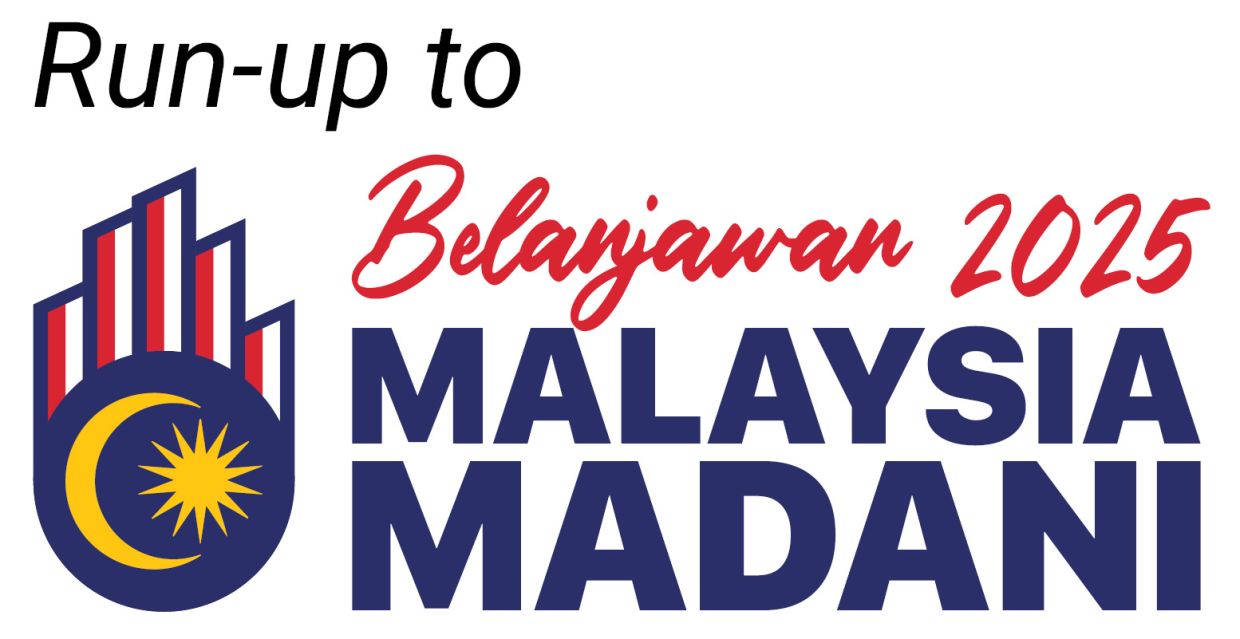
IN order to achieve our progressive aspirations, Malaysia needs to have in place a robust tax compliance framework that can strengthen tax collections and unlock further revenue streams so that public investments in infrastructure, education and healthcare can continue to be sustained for the rakyat.
However, developing a tax compliance framework is not just about streamlining policies nor can tax compliance be fostered simply from enforcing stricter regulations and laws.
Enhancing tax compliance requires trust and transparency to exist between the government and taxpayers.
With Budget 2025 set to be tabled in Parliament this Friday, the government must balance increasing revenue collection with the compliance costs faced by the taxpayers, especially micro, small and medium enterprises, which contribute 39.1% to the Malaysian economy.
With the government’s aims to strengthen the nation’s revenue base, various tax initiatives have been introduced to reform and digitalise the tax system.
One of the notable initiatives is the phased implementation of e-invoicing, effective from Aug 1, 2024.
While these measures are crucial for economic growth, they also bring compliance costs for businesses. Meeting tax obligations requires time, money and resources. As more initiatives roll out, some businesses may struggle to keep up, leaving some vulnerable and in a position of non-compliance.
So, the question is: How can the government further enhance tax compliance while alleviating the rakyat’s burden?
Transparency and communication
Transparency and clear communication are crucial to building public trust.
The Inland Revenue Board (IRB) could consider implementing a multi-year programme whenever major tax initiatives or reforms are introduced.
This would give taxpayers ample time to plan for changes in a structured manner, manage expectations and ensure a smoother transition.
It would also allow businesses to allocate time and resources to upskill their staff, address potential gaps and budget for the necessary technology investments.
A phased approach, accompanied by a clear roadmap and regular updates from the IRB would ensure taxpayers are adequately prepared for upcoming changes.
This strategy would also allow for feedback and adjustments during implementation, minimising disruptions and fostering a cooperative atmosphere between the tax authority and taxpayers.
Furthermore, the IRB could encourage compliance through social norms messaging. For example, HM Revenue and Customs in the United Kingdom has successfully implemented campaigns highlighting high compliance rates among peers and leniency towards voluntary disclosures, effectively nudging taxpayers toward timely filing.
Similarly, the Internal Revenue Service (IRS) in the United States has also utilised this approach to encourage compliance, especially among hesitant filers.
Each IRS campaign is addressed through one or more treatment streams, which are a combination of compliance actions, such as issue-based examinations, soft letters to encourage voluntary self-correction and stakeholder outreach initiatives.
These approaches, in turn, have not only encouraged taxpayers to come forward, but also shown positive results in increasing tax compliance rates.
Rewarding compliance
To further build trust, the IRB could place greater confidence in taxpayers who consistently demonstrate high compliance.
By leveraging big data analysis to track taxpayer behaviour, the IRB can identify individuals and businesses that regularly meet their tax obligations.
Coupling this with the newly introduced e-invoicing system could encourage more honest reporting and voluntary disclosures.
Instead of increasing compliance burdens, focusing on rewarding compliant taxpayers may be more effective.
In Singapore, for instance, the Inland Revenue Authority of Singapore offers tax rebates for timely filings.
As for the United States, the IRS provides incentives such as the earned income tax credit to encourage compliance, particularly among low-income individuals, allowing them to maximise their tax savings.
Issuing warnings for first offenses, rather than penalties, could also foster trust.
This would give taxpayers a learning opportunity, emphasising the importance of compliance without being overly punitive – especially for those who are making genuine efforts to comply.
Collaborative programmes, education
Collaborative programmes between the IRB and taxpayers are another effective way to enhance tax compliance. Such initiatives can demystify the tax process, making it more transparent and less intimidating.
Although the IRB has already introduced the Tax Corporate Governance Framework (TCGF) to promote governance, trust and transparency, the programme primarily targets large or public listed companies.
The IRB could consider developing a simpler version of the TCGF for small businesses, to help them better understand and meet their tax obligations.
Additionally, enhancing taxpayer education through regular bite-sized workshops or training sessions could further improve compliance.
For example, the Canada Revenue Agency offers self-guided online courses to help taxpayers improve their grasp of the tax system and their responsibilities. Similar efforts could be adopted in Malaysia to navigate tax compliance in a more effective manner.
Enhancing tax compliance in Malaysia requires a multifaceted approach that prioritises trust, transparency and collaboration.
Building trust and transparency is not something that can be achieved overnight.
While it takes time, combined with sustained effort and a commitment to open collaboration, Malaysia can achieve higher tax compliance rates.
This, in turn, will ultimately benefit the nation’s economic growth, development and the rakyat.
Chang Mei Seen is Partner, Transfer Pricing and Ooi Wei See is associate director, Transfer Pricing at KPMG Malaysia. The views expressed here are the writers’ own.









































